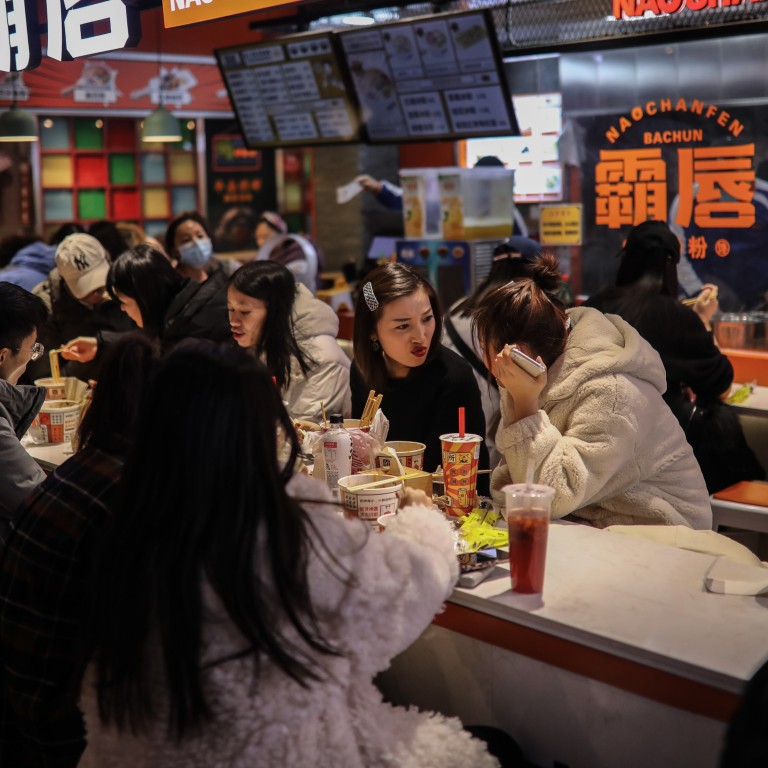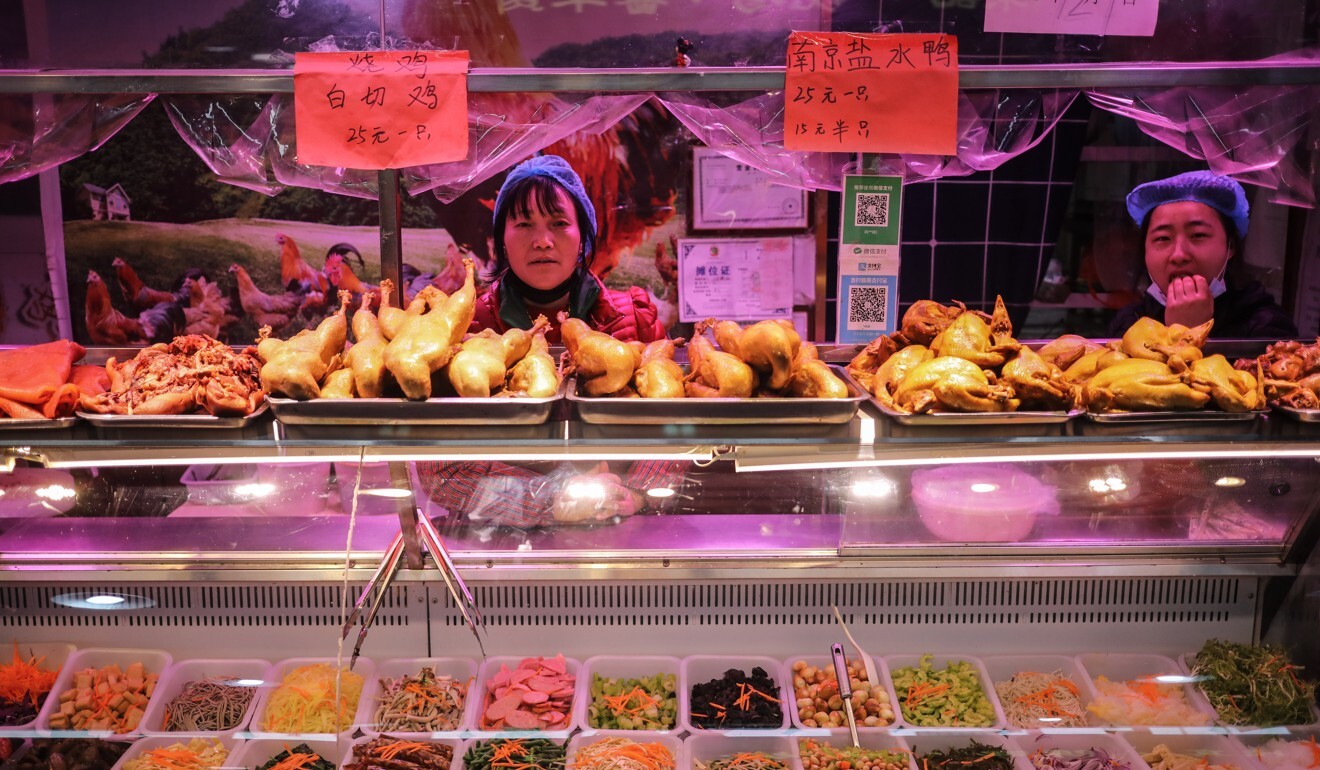
China looks to curb food waste as festive season dawns
- Lawmakers on Tuesday began deliberating a draft law on preventing food waste, the first of its kind in the country
- President Xi Jinping has urged everyone to cut down on what he called ‘shocking and distressing’ levels of wastage
Zhang Yuping, a waitress at a pizza restaurant in Beijing has mixed feelings about the festive season. It is usually a prime time for the catering business, which means more income, longer hours and more food waste to handle.
“I’m happy to see customers relaxed and enjoy the festival atmosphere in our restaurant,” Zhang said. “But I’m also distressed to find piles of plates of pizzas, chicken wings, chips and drinks are left over with some completely untouched.
“My colleagues and I have to take an extra hour to clear it up every day this week. The amount of waste is astonishing,” she said.
Throwing away or destroying food is a global problem. In 2016, France banned grocery stores from throwing away edible food and Italy passed a similar law to punish food waste.
Can China stop wasting food? Reform on menu after Xi Jinping dishes out scolding
In China, the problem is significant. Chinese consumers wasted 17 million to 18 million tonnes of food in 2015, enough to feed 30 million to 50 million people for a year, according to a 2018 report by the Institute of Geographic and National Resources Research and the World Wide Fund for Nature.
“Although we have had bumper harvests for many years in a row, we must always stay alert to grain supply security,” Xi said.

While there is no immediate problem with food shortages in China, the country’s shrinking rural population and growing demand for imported farm products, including soybeans, have raised red flags about potential supply disruptions.
According to the draft of the anti-food waste law, which is subject to the first reading by the National People’s Congress Standing Committee this week, restaurant customers with excessive leftovers will be charged a waste fee of an unspecified amount. Also, restaurants will be hit with a fine of between 1,000 yuan (US$150) and 10,000 yuan if they “induce or mislead” customers to order excessively.
The draft also outlaws “eating shows” or “competitive eaters” on social media platforms, while vloggers and platforms producing, publishing or broadcasting eating sprees online will face penalties of up to 100,000 yuan.
Local authorities have quickly embarked on programmes to reduce waste. In Haining in east China’s Zhejiang province, civil servants have recently been ordered to eat all their food at their canteens.
Tan Qinyi, who works at the science and technology bureau, said the municipal administration managing government offices would carry out random inspections to check if anyone failed to leave an empty plate after dining at the canteen.
There was also a sign at each table reminding people against waste. “Those who fail to empty their plates would get a warning,” she said.
“I think this initiative is meaningful in terms of making some people forget about ostentation, especially rural residents who like holding sumptuous feasts as they get rich,” she said.
China’s internet watchdog shuts down 13,600 mukbang accounts for promoting food waste
Some public schools are also encouraging students to be more frugal with food. Lin Xia, a primary school pupil in Shanghai said that at his school, every pupil was given points for emptying their lunchbox and could save them up to exchange for gifts.
“I eat up all my food nearly every day so I can get the points. I am not as picky about food now as I used to be,” he said.
According to a 2018 report by the Institute of Geographic Sciences and Natural Resources Research, Chinese schoolchildren threw away a third of the contents of their lunchboxes.
China launched the “Empty Your Plate Campaign” in 2013 to curb officials’ extravagant feasts and receptions. Since then, ideas such as smaller dishes and taking away your leftovers have been promoted by Communist Party.
Public awareness has improved to some extent, but food waste remains a big challenge, according to Hu Xingdou, an independent political economist in Beijing.
“Ordering excessive food is often used to demonstrate generosity towards business partners and guests. As consumerism has been gaining steam in recent years, some people flaunt their wealth by ordering too much [food] and taking pleasure in sharing the pictures online,” he said.


